Better Inheritors: Steps to Prepare Your Heirs and Improve Your Legacy

AN INTERGENERATIONAL PLAN sets down how your family’s wealth will be managed and transferred to heirs next in line and to future generations.
An ideal plan aims to create durable improvement in your family tree, continually building on prior successes and making the world a better place for your heirs down the line. To do so, your plan must reach beyond data and documents and include the values and habits—the wisdom—that helped to build and maintain that wealth in the first place.
Leveling Up Your Legacy
Your finances are a private matter, and only you can decide how much of your estate planning you’d like to share with your family.
Many parents don’t share the inner workings of their financial lives with their children. Their reasons may be both rational and well-intentioned, reflecting the fear that disclosing details about their wealth will lead to lack of motivation, a sense of entitlement, or a poor work ethic in their children.
But perhaps equally corrosive are unprepared heirs, who may have witnessed you spending your money, but have limited understanding about how you’ve earned it, saved it, or invested it. If your children see your estate plan for the first time while also grieving, there’s a greater chance that what is revealed could lead to misunderstanding or mistrust. Similarly, if your heirs are not familiar with the aims of your planning or the vehicles you’ve chosen to implement it, they might stumble into costly strategic errors.
Yes, just getting estate planning documents in place is a project, but don’t stop there. Communication ahead of time between parents and heirs can prevent many problems. In fact, it leads to better inheritors.
Communication ahead of time between parents and heirs can prevent many problems. In fact, it leads to better inheritors.
Foremost, your estate plan should reflect your values and what you believe to be fair, and you should feel empowered to stand firm on your decisions. If there are family dynamics that deter you from sharing your plan, then not sharing or limiting what you share may very well be the more prudent choice.
Breaking Down the Process
Educating your heirs can take various forms and levels: private family discussions, letters you leave for loved ones, and structured family meetings with your advisors. Adjusting for their ages and general financial knowledge, you may need to bring your beneficiaries up to speed in phases. Some milestones to consider:
-
The appropriate time for my heirs to read my will and other estate documents.
-
The point at which my heirs knowing my net worth (and their own) becomes advantageous.
-
The point at which it becomes useful for my heirs to meet or connect with my advisors (attorney, accountant, insurance advisors, financial advisor).
-
The point at which my heirs should become familiar with my investment strategy and my investment goals.
If you choose to address these milestones, it may lead to discussion about the whys of your estate planning: the rationale behind your decisions on access, control, or perceived inequalities. If you can foster collaboration with your heirs, it can help them join you in your goals for preserving your legacy of prosperity for them and their heirs.
You may want to ask your children how they foresee benefiting from their inheritance. Encouraging them to engage in discerning their own goals is likely to lead to a better appreciation of your goals and an elevation of their mindset toward a stewardship mentality. You might even gain more confidence about and find advantage in transferring generational wealth during your lifetime.
Advancing the Process with Your Professional Team
Our role during intergenerational continuity planning family meetings is facilitation. We provide a comfortable, professional setting for your estate plan and legacy conversations. We strive to make everyone comfortable, encourage dialogue and participation, and ensure that all stakeholders are heard and understood.
From a financial planning standpoint, we help educate participants about minimizing tax liability, maximizing wealth transfer, enhancing financial security, mitigating disputes and conflicts, and complying with legal and regulatory requirements. If you’d like, we can include the other professionals on your team as well.
Talk to your advisor about how you can create a family meeting that works for your family. We can discuss worries you might have about sharing your plan’s details with loved ones and potential strategies for dealing with those concerns. We can help make sure your plan aligns with your goals. We consider it some of the most important work we do.
IT’S WORTH HIGHLIGHTING that adult children need documentation of their own. Once they turn 18, your children take on the responsibility of maintaining their own medical and financial information. It’s important to have the right tools in place so young adults can assert their wishes and their parents can continue to provide support for them on the road to financial independence.
Living Will (or Advanced Medical Directive). This document defines what lifesaving measures one would choose in the event of a severe medical crisis.
Durable Financial Power of Attorney. In general, this document allows a designee to access another adult’s financial records and make decisions on their behalf, such as paying bills and accessing bank accounts, if they are not able to do so.
Healthcare Power of Attorney. Also called a healthcare proxy, this document allows someone else to make medical decisions on your child’s behalf if they are not able to do so.
HIPAA Release Form. This allows parents to have access to their adult child’s medical records and healthcare professionals to share information freely.
FERPA Waiver. For students in college, this waiver allows parents to access their financial aid, student records, and student accounts.
Please remember that past performance may not be indicative of future results. Different types of investments involve varying degrees of risk, and there can be no assurance that the future performance of any specific investment, investment strategy, or product (including the investments and/or investment strategies recommended or undertaken by TGS Financial Advisors), or any non-investment related content, made reference to directly or indirectly in this article will be profitable, equal any corresponding indicated historical performance level(s), be suitable for your portfolio or individual situation, or prove successful. Due to various factors, including changing market conditions and/or applicable laws, the content may no longer be reflective of current opinions or positions. Moreover, you should not assume that any discussion or information contained in this article serves as the receipt of, or as a substitute for, personalized investment advice from TGS Financial Advisors. To the extent that a reader has any questions regarding the applicability of any specific issue discussed above to his/her individual situation, he/she is encouraged to consult with the professional advisor of his/her choosing. TGS Financial Advisors is neither a law firm nor a certified public accounting firm and no portion of this article’s content should be construed as legal or accounting advice. A copy of the TGS Financial Advisors’ current written disclosure statement discussing our advisory services and fees is available upon request.


